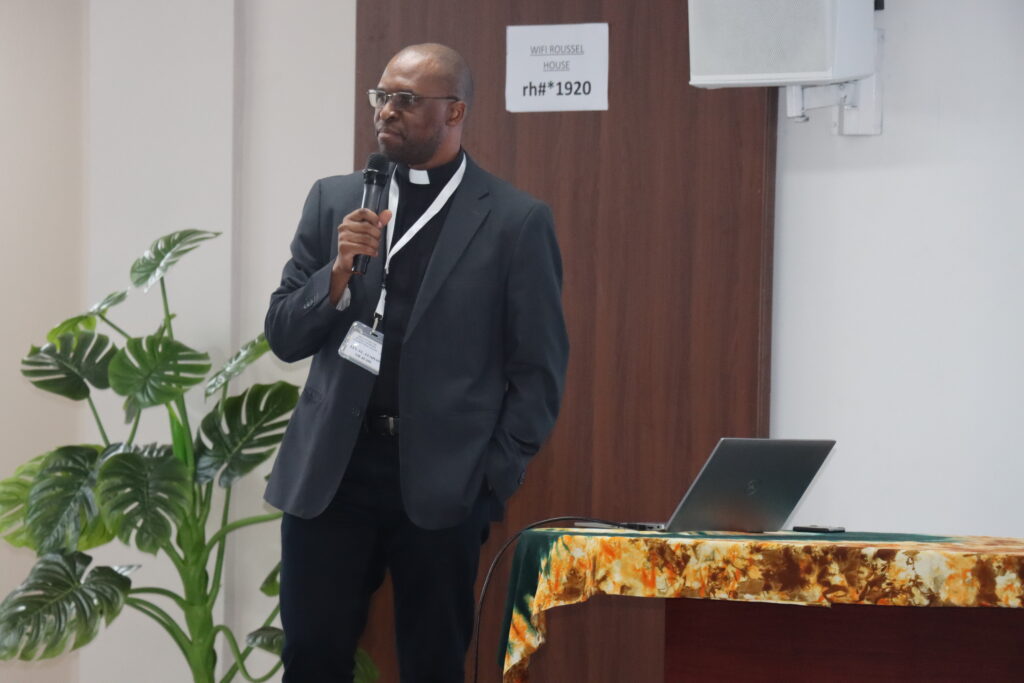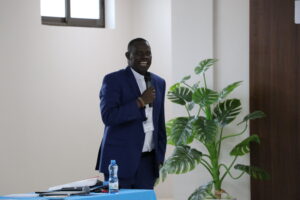AMECEA: Integral Human Development Calls for a Holistic Approach, Collaboration

Fr. Vilakati
Sr. Jecinter Antoinette Okoth, FSSA
To create a world where every person can achieve their full potential, live with dignity, and contribute meaningfully to society, Church officials have noted that development should aim at the authentic advancement of humanity in all aspects of life.
While addressing Bishops and officials presiding over the Commission in the Promoting Integral Human Development (PIHD) in the Association of Member Episcopal Conferences in Eastern Africa (AMECEA) region and Vatican representatives at a conference in Nairobi, Kenya, Fr. Dumisani Vilakati highlighted that the Dicastery’s approach to holistic integral development is to “listen, dialogue and reflect, and then discern, propose and support effective responses.”
According to Fr. Vilakati, who serves at the Dicastery’s section of Listening and Dialogue as the Regional Coordinator of Africa, the Dicastery of PIHD in the Vatican “is most attentive to the concerns expressed by the Local Churches and the requests they make specific to the local realities and changing over time.”
In this case, he said on Thursday, November 28, that the Dicastery’s agenda is shaped by the challenges expressed by the local Churches across the globe.
Besides the Listening and Dialogue section, whose role is to bridge with the local Church and its various ministries in promoting integral human development, the other sections in the Vatican’s Dicastery of PIHD include the Research-Reflection section that ensures that the “needed disciplines and Catholic social teaching are applied in search of responses to the challenges,” and the Communication-Restitution section for wider communication.
The member of the Clergy of the Catholic Diocese of Manzini in Eswatini stressed that listening and reflecting in a synodal manner “Form the basis for discerning, proposing and communicating effecting responses.” Fr. Vilakati added that listening and reflecting “Should help God’s people to act evangelically in difficult situations that require transformation for the benefit of all.”
When the Holy Father instituted the Dicastery for PIHD, its core mission was from the reflection of St. John the Apostle (Jn 10:10): “I came that they may have life and have it abundantly,” with the objective of “promoting the human person and their-God given dignity, human rights, health, justice, and peace.”

Expounding further on the AMECEA’s perspective on the structure and strength of integral human development, Fr. Paul Mung’athia Igweta said that “Integral Human Development, for every person and for all, cannot be imposed, but rather proposed and built up by all.”
The Kenyan cleric who serves as the Coordinator for the PIHD in the AMECEA region narrates that this holistic development “requires not only a dialogical approach to the analysis of reality but also a partnership model to implement development programs.”
Therefore, as a department, Fr. Mung’athia said, “We aim at promoting integral human development in collaboration with other departments of the Roman Curia, with local Churches, other Catholic and non-Catholic institutions, with other churches and religions, with local and global governance bodies, with academics and experts on the field, and, above all, with sectors of the world population that are excluded from the benefits of the current model of progress.”
Additionally, the vision of PIHD is rooted in Christian anthropology, and holistic development is “for each person, for the whole person, and for all peoples,” Fr. Mung’athia expressed to the over 30 participants who gathered for a two-day conference at Roussel House Donum Dei, Nairobi, Kenya from 27 to 30th November.”


